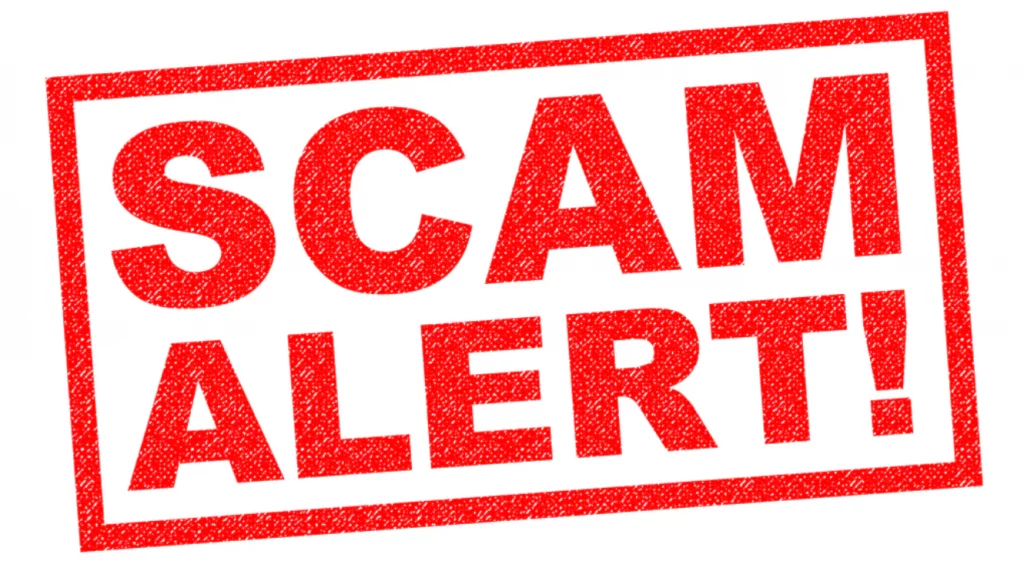Freewallet is a cryptocurrency wallet app that claims to provide a range of services for individuals to securely store and manage their digital assets. However, there are concerns about the legitimacy and reliability of this platform. Many users have reported fraudulent activities, limited control over their coins, frozen customer assets, and worst experiences with the company. In this article, we will explore why Freewallet should be avoided and delve into the various issues and risks associated with this questionable wallet service. It is essential to understand the potential drawbacks and be cautious when entrusting your cryptocurrencies to any platform, especially one that has a questionable reputation like Freewallet.
Why Is Freewallet Being Called A Scam?
Freewallet, a crypto wallet app, has recently faced controversies and complaints, leading to allegations of being a scam. From selective scamming to funds getting stuck and even a controversy surrounding stolen ETH, users have raised serious concerns about this platform. Let’s delve into the key issues that have led to such accusations.
Numerous users have reported instances of selective scamming by Freewallet, where some accounts allegedly had their funds frozen or disappeared without any warning or explanation. Additionally, users have faced difficulties in accessing their funds with complaints of funds being stuck for prolonged periods without any assistance from customer support.
One of the most concerning incidents involved the controversy surrounding stolen ETH from users’ wallets. It is alleged that some users experienced unauthorized transfers of their ETH without consent or knowledge.
Poor customer service, unnecessary transaction fees, biased exchange rates, and the requirement for an email address have been common complaints among Freewallet users. This lack of responsiveness and transparency has eroded trust in the platform.
Freewallet’s founder, Alvin Hagg, addressed the accusations and claimed that there were no further instances of theft or scam allegations against the platform. However, user dissatisfaction and concerns persist.
The controversies and complaints surrounding Freewallet have raised serious doubts about the platform’s trustworthiness. Selective scamming, funds getting stuck, stolen ETH, poor customer service, and unnecessary transaction fees are among the key issues highlighted by users. Until these concerns are adequately addressed, caution is advised when dealing with Freewallet.
Types of Wallets To Avoid
Introduction: When it comes to storing and managing your cryptocurrencies, it is crucial to choose a reliable and secure wallet. Unfortunately, not all wallets are created equal, and there are certain types of wallets that you should avoid due to their potential risks and vulnerabilities. In this article, we will discuss the types of wallets that you should avoid to ensure the safety and security of your digital assets. From centralized wallets with custodial nature to wallets with poor customer service and fraudulent activities, it is essential to be aware of these pitfalls to protect your cryptocurrency investments.

Cold Storage Wallets
Cold storage wallets are a type of crypto wallet that provides the highest level of security for storing digital assets. Unlike hot wallets, which are connected to the internet, cold storage wallets are offline and therefore not susceptible to hackers or malware.
One common type of cold storage wallet is the hardware wallet. These physical devices, such as Ledger Nano X, Trezor Model T, and KeepKey, are specifically designed to store cryptocurrencies securely. They use advanced encryption and private keys to protect your digital assets.
One of the key benefits of cold storage wallets is their offline nature, which helps prevent unauthorized access to your coins. This makes them the safest option for the long-term storage of digital assets. Additionally, cold storage wallets often have built-in security features, such as pin codes and recovery phrases, adding an extra layer of protection.
By using cold storage wallets, cryptocurrency enthusiasts have control over their funds and can securely manage their coins without the fear of online threats. While other types of wallets like mobile wallets and exchange wallets have their conveniences, they may come with certain risks.
Crypto Wallet App Providers
When it comes to crypto wallet app providers, there are several options available in the market. One of the notable providers is Freewallet, although this platform has been surrounded by controversy.
Freewallet offers a wide range of cryptocurrencies to choose from, making it a popular choice among crypto enthusiasts. However, there have been concerns raised about the company’s practices, as some users have reported frozen customer assets and selective scamming. These issues have led to negative reviews and a reputation as a despicable company.
In terms of security features, Freewallet claims to prioritize the safety of user funds. The app requires a pin code for access and provides a registration process to safeguard against unauthorized use. However, it’s important to note that the custodial nature of the platform means that users do not have direct control over their private keys. This diminishes a key feature of crypto wallets: giving individuals full control over their digital assets.
While Freewallet may support a wide range of cryptocurrencies, users must conduct thorough research and consider other wallet providers that offer more transparent and secure options for managing their crypto assets.
Exchange Wallets
While Freewallet offers a wide range of cryptocurrencies to choose from, it also boasts an in-built exchange feature that sets it apart from other wallet providers. This feature allows users to conveniently switch coins within the wallet itself, eliminating the need to send them to an external exchange. Facilitated through the Changelly exchange service, Freewallet enables seamless crypto conversions without any additional steps or fees.
Exchange wallets like Freewallet provide a convenient solution for individuals who frequently engage in cryptocurrency trading or wish to diversify their crypto holdings. With the in-built exchange feature, users can easily switch between different cryptocurrencies with just a few taps on their mobile device.
However, despite this added convenience, it’s important to exercise caution when using exchange wallets. Some users have reported frozen customer assets and selective scamming on the Freewallet platform, raising concerns about the security and reliability of the service. As such, it is crucial to thoroughly research and consider alternative wallet options that prioritize user security and have a proven track record in the industry.
Hot Wallets And Mobile Cryptocurrency Wallets
Hot wallets and mobile cryptocurrency wallets are popular options for individuals looking to store and manage their digital assets on the go. These wallets provide a range of features and benefits but also come with certain risks.
Hot wallets, also known as online wallets, are connected to the internet and provide easy accessibility to coins anytime and anywhere. They are accessible through web browsers or mobile apps, offering a user-friendly interface. Mobile cryptocurrency wallets, specifically designed for mobile devices, allow users to manage their digital currencies efficiently. They offer features like transaction history, balance monitoring, and even built-in exchange options.
The benefits of using hot wallets and mobile cryptocurrency wallets include convenience, accessibility, and a wide range of supported cryptocurrencies. With these wallets, users can easily send and receive digital currencies, monitor their portfolios, and make quick transactions.
However, there are risks associated with using hot wallets and mobile cryptocurrency wallets. Since they are connected to the internet, they are more vulnerable to cyber-attacks and hacking attempts. Users need to be cautious and regularly update their wallets’ security features, such as using strong passwords and enabling two-factor authentication.
Some popular mobile cryptocurrency wallet providers are Coinbase Wallet, Trust Wallet, and Exodus Wallet. Each of these wallets offers unique features such as multi-currency support, enhanced security measures, and user-friendly interfaces.
Multi-Currency Wallet Apps
Multi-currency wallet apps play a crucial role in the cryptocurrency industry by providing users with a convenient and efficient way to manage their digital assets. These wallets are designed to support multiple cryptocurrencies, allowing users to store, send, and receive different types of digital currencies all in one place.
One of the notable multi-currency wallet apps in the market is Freewallet. This wallet offers a wide range of supported digital assets, including popular cryptocurrencies like Bitcoin and Ethereum, as well as lesser-known coins. With Freewallet, users can easily diversify their crypto portfolios and have access to a variety of coins from a single wallet.
The importance of multi-currency wallet apps lies in their ability to simplify the management of different cryptocurrencies. Instead of having multiple wallets for each digital asset, users can conveniently store and monitor their holdings in one centralized location. This not only saves time but also reduces the risk of losing or misplacing funds.
Reasons to Avoid Freewallet: Common Complaints and Issues
While Freewallet may seem like a convenient option for managing multiple cryptocurrencies from a single wallet, some several common complaints and issues make it a problematic choice. One of the primary concerns is the custodial nature of the wallet, where users do not have complete control over their funds. This raises questions about the security and safety of storing digital assets with Freewallet. Additionally, many users have reported frozen customer assets, inability to access their coins, and difficulties with the registration process. The wallet also imposes transaction fees, which can add up over time. Moreover, the lack of transparency and a dedicated customer support team makes it challenging for users to address their concerns. Overall, the numerous problems reported by users make it advisable to avoid Freewallet and opt for more reliable and reputable wallet providers.

Poor Customer Service and Complaint Resolution
Freewallet is scam, the cryptocurrency wallet provider, has garnered a reputation for its poor customer service and lackluster complaint resolution. Numerous users have voiced their dissatisfaction with the company’s rude and unhelpful customer support.
Good customer support is essential in the world of cryptocurrency wallets, where users entrust their digital assets to a third party. The quality of customer service can greatly impact the overall user experience. Unfortunately, Freewallet has failed to meet the expectations of its users in this regard.
Users who encounter issues or have concerns about their wallets often find themselves faced with unresponsive and uncooperative customer support. Instead of receiving prompt assistance and resolution, they are met with dismissive and condescending responses. This not only adds frustration to an already complex process but also raises concerns about the company’s commitment to its customers.
To report their grievances and seek assistance, users can attempt to contact Freewallet’s customer support through various channels including email, live chat, and social media channels. However, based on user feedback, the responsiveness and effectiveness of these contact methods may be questionable.
Unnecessary Transaction Fees
Freewallet is notorious for charging unnecessary transaction fees, which negatively impact users’ experience and erode their digital assets. These fees are often exorbitant and are not justified by any additional services or features provided by the company.
Examples of specific fees imposed by Freewallet include withdrawal fees, network fees, and exchange fees. These fees can substantially reduce the value of users’ transactions, causing frustration and financial losses. For instance, users have reported paying high withdrawal fees for transferring their digital assets out of the wallet, even though other wallet providers offer this service for free.
Despite these excessive fees, Freewallet claims to have competitive fees within the industry. However, many users dispute this claim, arguing that the fees charged by the company are far higher than other reputable wallet providers. This has triggered a debate among users, with some believing that Freewallet’s fees are justified, while others label them as exploitative.
Built-In Exchange Rates That Favor the Company Not the User
Freewallet’s built-in exchange rates have been a subject of concern among users, as they appear to favor the company rather than the user. One example of this is the slightly lower value of Ethereum in Bitcoin on Freewallet compared to the live market.
While this may seem like a negligible difference, it can add up over time, especially for those frequently engaging in trading activities. Users have noticed a consistent 0.5% difference in value, which may indicate that Freewallet is benefiting from these exchange rates to generate additional revenue.
Despite this disadvantage, some users still find it more cost-effective to exchange coins within Freewallet. This is because sending funds to an external exchange often incurs transaction fees, network fees, and exchange fees, which can significantly reduce the overall value of the transaction. In these cases, users may prefer to bear the slightly lower exchange rate within Freewallet to void these additional costs.
However, it is important for users to be aware of these built-in exchange rates and consider the potential impact on their transactions. Prior knowledge of the market rates and comparing them with Freewallet’s rates can help users make informed decisions and avoid any unexpected financial losses.
Email Address Is Required To Use The Platform
One of the requirements to use the Freewallet platform is providing an email address during the registration process. This email address is necessary for several reasons. First and foremost, it serves as a unique identifier for each user and is used as a login credential to access the platform.
Additionally, the email address is required for communication purposes. Freewallet sends important notifications, updates, and security alerts to the registered email address. This helps users stay informed about any changes or developments within the platform.
Furthermore, the email address is used as an added layer of security for account recovery and password reset purposes. In case a user forgets their password or needs to recover their account, Freewallet can send instructions or verification links to the registered email address to ensure the account owner’s identity.
It is important to note that Freewallet takes privacy concerns seriously and adheres to strict data protection policies. The registered email addresses are kept confidential and are not shared with any third parties without the user’s consent. Users can also customize their notification preferences and opt out of any nonessential communication.
By requiring an email address, Freewallet aims to provide a secure and personalized experience for its users while ensuring efficient communication and account recovery processes.
Centralized Wallets Are Unsafe For Users
Centralized wallets, like the one offered by Freewallet, are inherently unsafe for users. Unlike cold storage wallets or individual wallets where users have control over their private keys, centralized wallets place the security of user funds in the hands of a third party.
In the case of Freewallet, the company controls users’ private keys, which poses a significant risk. By controlling the private keys, Freewallet can access, freeze, or even lose user funds. This custodial nature of centralized wallets contradicts the core principles of cryptocurrencies, which prioritize decentralization and user control.
Moreover, the practice of centralized wallets goes against the fundamental concept of cryptocurrencies, which is to provide a peer-to-peer, trustless system. By relying on a centralized entity like Freewallet, users are essentially giving up control and trusting the company with their digital assets.
Given the numerous reports and complaints about Freewallet’s practices, it is evident that trusting them with your funds can lead to disastrous consequences. The company has been accused of freezing customer assets, engaging in fraudulent activities, and providing poor customer support.
To ensure the utmost security and control over your digital assets, it is best to opt for cold storage wallets or individual wallets that allow users to have full control over their private keys. This way, you can avoid the risks associated with centralized wallets and the unsafe practices of companies like Freewallet.
Conclusion
In conclusion, the question of Freewallet’s legitimacy remains a topic of debate. On one hand, the custodial nature of the wallet allows for easy access and user-friendly features. On the other hand, this centralized control contradicts the key principles of cryptocurrencies and puts user funds at risk.

